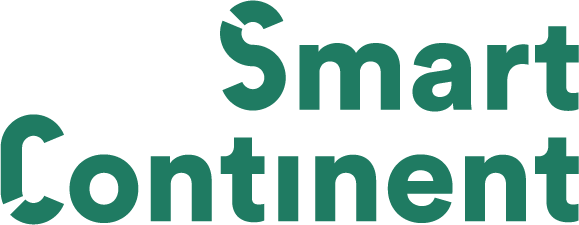Smart Continent’s projects by year and client
2013 Research on Long term strategy on fund raising for renovation public and private ownership buildings including dwelling housing and commercial purpose buildings. Ministry of Energy of the Republic of Lithuania
2016 Analysis of feasibility and alternatives to implement Directive 2015/2013 in Lithuania and analysis of potential impact. Ministry of Energy of the Republic of Lithuania
2016 Feasibility study on renewable energy sources use in Trakai centralised heating system. Trakai District Municipality Administration
2016 Feasibility study on renewable energy sources use in Varena A. Riliskis secondary school and Miroslavas retirement home. Varena District Municipality Administration
2017 Action plan for use of renewable energy sources. Klaipeda District Municipality Administration
2017 Ex ante evaluation of 2007-2013 EU structural aid impact on energy sector. Ministry of Energy of the Republic of Lithuania
2018 Evaluation of the progress of the priority tasks of the Operational Program Promoting Energy Efficiency and Renewable Energy and Utilization. Ministry of Energy of the Republic of Lithuania
2019 Identification of feasibilities to develop use of renewable energy sources in transport sector. Ministry of Energy of the Republic of Lithuania
2019 Feasibility Study for Kaisiadorys-Klaipeda Electrification and Design of Application for Large-Scale Project EU Funding. Lithuanian Railways
2020 Analysis and Evaluation of Legislative Models of the Member States of the European Union, Regulating the Requirements for the Installation and Operation of Energy Facilities. Analysis and Proposals for the Reconstruction of the Lithuanian Legal Framework Regulating the Requirements for the Installation and Operation of Energy Facilities. Ministry of Energy of the Republic of Lithuania
2020 Analysis of renewables usage in Kaisiadorys district. Kaisiadorys District Municipality
2020 Determination of the need for investment aid for the development of wind power plants in the part of the Lithuanian territorial sea and (or) the exclusive economic zone of Lithuania in the Baltic Sea and assessment of the impact of the development of these power plants on the national economy. Ministry of Energy of the Republic of Lithuania
2020 Feasibility study on Development of digital innovations in energy sector. Ministry of Energy of the Republic of Lithuania
2020 Financial, economic, social and environmental benefit assessment services for industrial sector policies under the National Energy and Climate Action Plan (NECP). Ministry of Economic and Innovation of the Republic of Lithuania
2020 Study on Assessment of the Impact of Lithuanian Taxes on the Consumption of Energy and Energy Resources. Ministry of Energy of the Republic of Lithuania
2020 Sustainable energy plan 2021-2030 for Silute District. Silute District Municipality
2021 Assessment of the principles of regulation of prosumers of electricity and determination distribution network fees. Ministry of Energy of the Republic of Lithuania
2022 Evaluation services regarding the National Energy and Climate Action Plan 2021-2030 Ministry of Energy of the Republic of Lithuania
2022 Investment plan in the Lithuanian water management sector. Ministry of Environment of the Republic of Lithuania
2023 Impact assessment of energy efficiency and promotion of use of renewable energy resources. Ministry of Energy of the Republic of Lithuania
2022-2025 DISTENDER: Developing strategies by integrating mitigation, adaptation and participation to climate change risks. European Commission Horizon Europe Programme

